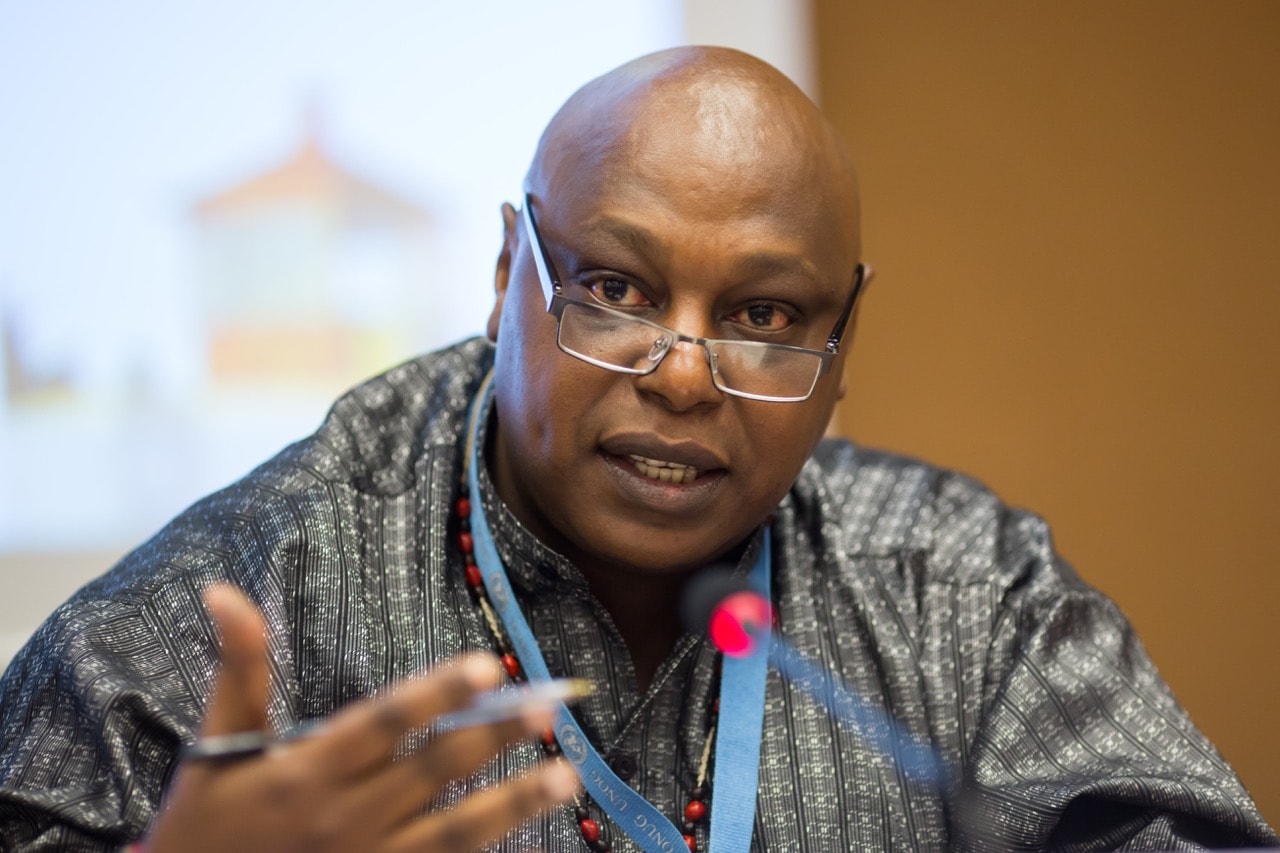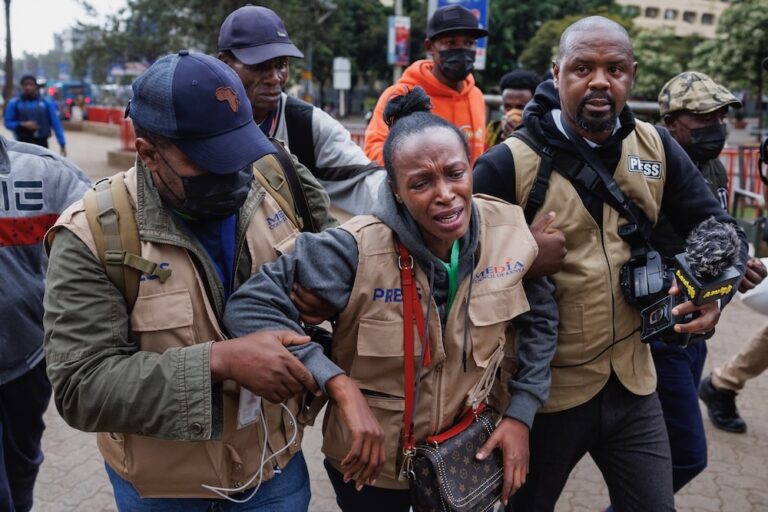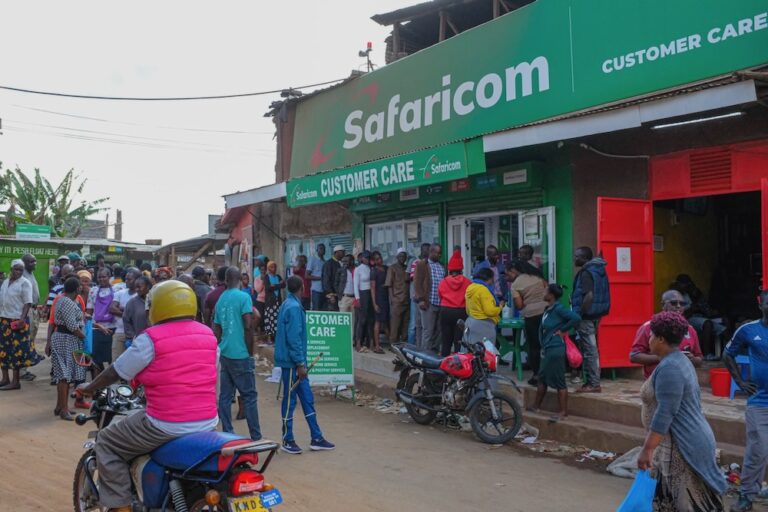The links between freedom of expression and freedom of assembly have never been closer. Journalist Samuel Gebre interviewed Kiai in Nairobi for IFEX, first in December 2017, and then again in January 2018, and shares some of these insights from a passionate individual who has dedicated his career to the promotion of human rights, globally as well as in his native Kenya.
Highlights from the interviews with Maina Kiai
On challenges
The biggest challenge we have within the whole range of human rights, freedom of expression, media, and democracy work, is that the space is closing. The world is going through a democratic recession. Across the world you find governments becoming more clever, bold, and outrageous in terms of restricting democratic expression and space. In fact, in the six years I was the Special Rapporteur it became worse. It is ok now to express racist views, xenophobic views, and views that are anti-women. We have normalized the abnormal.
On inspiration
While we see a decline in democracy and human rights, there is also a push for it from ordinary people. What kept me going were the contacts I made with activists around the world. Women in Cambodia who refused to leave the homes they had moved into when they returned after the fall of the Khmer Rouge. Wealthy people are trying to remove them, but they are going to court. These are ordinary women, who just resist. That gives me strength.
Around the world there is a growing sense of resistance. Environmentalists in Latin America who are refusing to let companies log or mine and remove indigenous people from their homes; slum dwellers in Nairobi demanding their rights. And often you find the women there, in the lead. Malaysian professionals coming out to push for progressiveness.
The fact is, as democracy has reduced, people’s appetite for it has increased, and they are showing it, they are protesting.
On success
In many parts of the world, States require permission before protetss, gatherings, and assemblies can be held. When that happens, it converts the right into a privilege to be given out by the State as and when it feels. Advancing the case that assemblies are a right, not a privilege, was one of the big successes.
Another success was the report we produced that compared the enabling environment for business with that for civil society. It turned out that the difference was like night and day. Businesses are given a carte blanche. The report provided a framework for activists to say: this is how you treat your businesses, just treat us like that.
On lessons learned
The approach of traditional NGOs has to change. We are fighting a different battle than we did before. We turned human rights into projects and we dealt with it as projects, in little silos, and got very competitive with each other because of funding.
We need new tools and new strategies to enable us to deal with the current context. Human rights groups became too professionalized and too legalistic. The history of struggle in the world has never been about writing nice reports, it is about mobilizing people to come out – and we don’t do it well. That ground has been ceded, and if we are not careful it will go completely.
Though human rights are international, we need to be careful not to take the space of the locals. Whatever we do must not hurt those who are living in the country and demanding those rights. At the end of the day they will be the ones who will be there forever.
On gender and human rights
In the context of protests and freedom of assembly, especially in repressive situations, there are gendered attacks on women. In the six years of my mandate, women were particularly targeted in a sexualized manner; that was one of the most disheartening things. However, I also saw how effective and powerful protests can be when they are led by women.
Harassment of women happens across the globe, across the board, in every country. We need to build awareness that this is unacceptable. We also need to go beyond writing policies on gender inequality, sexual harassment and cultural norms. There needs to be continual training, talking, and ensuring that there are people and structures in place so that women feel comfortable coming forward when this happens. One of the things I pushed for very strongly when I was the mandate holder was that mainstream organizations should take up this issue within themselves.
When men always lead, it sends a message to women that they have no place in leadership. It distorts the healthy trajectory of development and democracy in a country. It is important to have inclusive representation and participation that cuts across gender and sexual orientation, as well as ethnic, racial, disability, and generational lines.
One of the major success stories, and one that has not been emphasized enough, has been the effectiveness of the LGBTQI+ community in terms of promoting acceptance and respect of LGBTQI+ people around the world. There is still homophobia, but there is a lot more acceptance in our lives.
On how his mandate influenced his views
My time in this role confirmed for me that what I was doing in Kenya with Inform Action, working with the grassroots, is the right thing to do. You have to work with communities, with the people themselves. It is not telling people what to do, but rather giving them information, facilitating. If they care about something, they will stand up for it.
It solidified in me the belief that protest is good, even for its own sake. Venting serves a purpose in our lives. I have learnt that if that venting valve is closed, then we lose control of what is going to happen, then we open the space for others to come in with their approaches and ulterior motives.
It is in the interest of governments to allow protests; when you stop them, violence happens. And if a protest is significant enough, that should tell the government something. It is, however, very dangerous to come out and protest in Kenya.
There is room to improve. I don’t think we are organizing properly, I don’t think we are spending enough time thinking through how to protest, and what other forms of protest there are. We are not spending enough time with the people who want to protest. It is a whole process of rethinking and relearning, and we don’t do enough of it. I learned about protests from the Koreans. They held seven protests for seven Saturdays in a row, with one million people turning out each time. The president was impeached, and parliament listened to the people.
I am a firm believer in people power. As constitutions are written and rewritten, they should keep a space for people power as a legitimate way to change government.
On current challenges in Kenya
The so-called independent media in Kenya is one of the biggest challenges. It is not the boisterous and courageous media we used to have. It plays the government game, because revenues are reduced and government advertising is so important to their survival. If you look at the Daily Nation, touted as East Africa’s leading newspaper, apart from Saturdays, where columnists are critical, there are no critical pieces. We have a problem.
In this country we cannot run away from the fact that tribalism has a role. The fact that we have put tribe above anything else in politics, and we want to defend ours beyond anything else, kills everything. Our media is not immune to the devaluation of Kenyan society. There are people in the mainstream media whose allegiance is to have their people in power.
International organizations that work on media should focus their attention on Kenyan media. As long as it is touted as the best in the region, it will continue operating in a weak and compromised way.
Another big challenge for freedom of association during the election period came in the form of attempts to shut down some critical NGOs; the Kenya Human Rights Commission and AFRICOM. I am on the board of directors of both. If a society doesn’t allow expressions of dissent and disagreement, no matter how good the country is, it has a problem.
On how legislation can hurt – or help
The tool of the oppressors has always been the law. Dictatorships and autocracies thrive on legality. When autocracies want to curtail the work of activists, they pass an ‘association law’; they could simply just close groups down, but that seems too drastic and dramatic. Such laws are a constant tool of trade, old school, but useful.
In Kenya, the judiciary has a right to complain that these laws do not conform with our constitution, and they should do so. But that would take courage, especially after Kenyatta clearly supported those laws. Kenyatta took on the International Criminal Court (ICC) and beat it, so people are nervous.
Any advice for the next Special Rapporteur?
In this mandate you have to understand the importance of freedom of association and assembly for civil society. We can define civil society broadly; trade unions, social movements, academic unions, professional association. Civil society has to be at the core of the issues you are dealing with, and working with them is very important.
Something that was not in the terms of reference was the amount of time I spent motivating civil society and activists. It’s a hard time to work in human rights. I would go and speak to them, tell them that they are not alone – this was important.
If the clock was put back, I would work more to put different groups around the world that are facing the same issues in touch with each other.
“As democracy has reduced, people’s appetite for it has increased, and they are showing it, they are protesting.”
“Protest is good; even for its own sake. Venting serves a purpose in our lives.”



